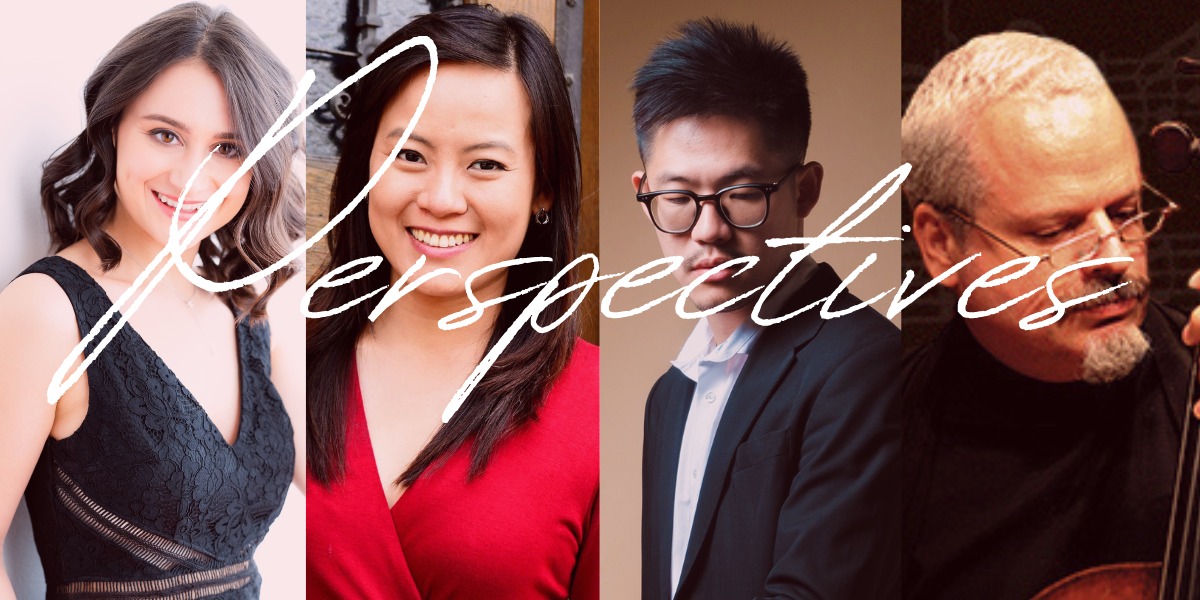by Stephanie Manning

Lots of ground to cover this weekend, with programs from ensembles small and large — including an early music debut and concerts for the whole family.
Following up yesterday’s concert, Elim Chan will continue to lead The Cleveland Orchestra in a Rachmaninoff-focused program on Friday at 7:30 pm, Saturday at 8:00 pm, and Sunday at 3:00 pm. Tickets available online.
For more large ensemble music, hear the BW Symphony Orchestra play Tchaikovsky’s Fifth on Friday at 7:00 pm (free, live stream available), or the Oberlin Chamber Orchestra play Robert Schumann’s Fourth on Friday at 7:30 pm (also free and live streamed.)
Friday also marks the debut performance of the early music ensemble CLEConcierto (pictured) with a program exploring Élisabeth Jacquet de La Guerre and her musical circle. Tickets available online.

Students from CIM will be featured on Friday at noon during the weekly CIM Museum Melodies, and again Sunday at 4:00 pm when the CIM New Music Ensemble performs works by Charles Ives and Curtis Stewart (tickets and livestream here). Or, head down the street to the Cleveland Cinemathéque for Silent Movie Day with live accompaniment by pianist Dr. Philip Carli. Tickets available here for the showings at 4:00 and 6:30 pm.
Finally, this weekend offers plenty of options to share the love of music with the young ones in your family. The Cleveland Orchestra’s Music Explorers Series: Vibrant Violin introduces 3-6 year olds to the instrument on Friday at 10:00 am and Saturday at 11:00 am (tickets available online). And Apollo’s Fire Family Concert: Fiddle Fiesta will tour sunny Spain, Italy, Greece & Egypt with performances on Saturday at 11:00 am and 3:30 pm, and Sunday at 3:30 pm. Free admission with pre-registration encouraged.
For more details on all these events, visit our Concert Listings.
WEEKEND ALMANAC:
September 27 — by Jarrett Hoffman
Today we zero in on Hänsel und Gretel, the most famous opera by German composer Engelbert Humperdinck, who died on this date in 1921. The work has a humble backstory: it originated as four songs accompanying a puppet show put on by the composer’s nieces (cute!), then expanded to a Singspiel with sixteen songs, and later to an opera. Stylistically, it’s notable for synthesizing two distinct sides of German music: one part Wagnerian influence, one part German folk songs.
Many performances of Hansel and Gretel have taken place locally over the past decade — wide-ranging both in spirit (from quite light to quite dark) and in presentation (both in-person and online). Head to our homepage and type the opera’s title into the search bar to peruse our archives at your leisure.
September 28 — by Jarrett Hoffman

Fine was a protege of Ruth Crawford, and seemingly brought a unique style to each of her works, many of which conveyed a sense of humor and fun. Click here to listen to her Songs and Arias (1992), performed by the Luna Nova Ensemble (Robert Patterson, horn, Gregory Maytan, violin, and Craig Hultgren, cello).
After entering the Shanghai Conservatory at the age of 12, Huang Ruo studied at the Oberlin Conservatory and at Juilliard. He was one of the original founders of the International Contemporary Ensemble (ICE). His oratorio Angel Island was featured in The New York Times earlier this year — read more about it here.
Click here to watch Wu Wei and Friederike Richter perform Ruo’s Wind Blows in a version for sheng and piano. There’s also a version for oboe and orchestra, performed here by García-Cano with Muhai Tang and the Beijing Symphony.
September 29 — by Daniel Hathaway
There are only a handful of obscure candidates for tributes today, so let’s focus on another aspect of September 29: Michaelmas, or the Feast of St. Michael and All Angels, falls on this date each year and marks the beginning of autumn in many Christian cultures.
It lends its name to the fall term in British universities, and gives rise to a number of folk customs, including making Michaelmas Bannock on the eve of the Feast of Saint Michael from equal parts of barley, oats, and rye without employing any metal implements. And Michaelmas draws the line after which you should stop picking blackberries. That last piece of advice derives from the legend that when the Archangel Michael expelled the rebellious Lucifer from heaven, he landed in a blackberry bush (ouch!), which he cursed and defiled in a special way. So don’t eat the berries.
Celebrate Michaelmas with a recent service of Choral Evensong for the Feast of St. Michael and All Angels from Saint Mark’s Episcopal Cathedral in Seattle. As pianist Stephen Hough has written, “Evensong hangs on the wall of life like an old, familiar cloak passed through the generations. Rich with prayer and scripture, it is nevertheless totally nonthreatening. It is a service into which all can stumble without censure – a rambling old house where everyone can find some corner to sit and think, to listen with half-attention, trailing a few absentminded fingers of faith or doubt in its passing stream.”



